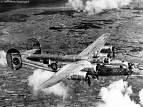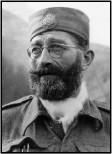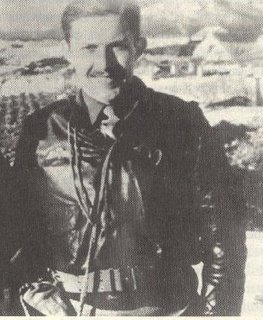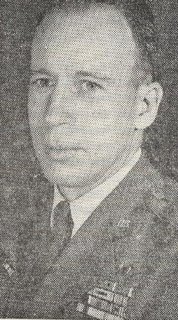GENERAL DRAZA MIHAILOVICH:
THE OFFICER AND THE MAN
By David Martin
Although Mihailovich was not widely known in the Western world at the time his country was invaded by the Nazis, he was very well known to a limited number of people concerned with the security of the Balkan countries.
Sir Alexander Glen, who served as British naval attaché in Belgrade before the German invasion, told me that he and Colonel Clark, head of the British military mission in Yugoslavia, had cultivated Mihailovich as one of the most promising junior officers in the Yugoslav army. Glen was obviously proud of his early friendship with Mihailovich, despite the fact that he had wound up as a liaison officer with Tito. Indeed, when I saw him at his home in Worcestershire, England in December 1977, he was still strongly pro-Tito in the sense that he felt that Tito had commanded a much more effective military force than Mihailovich, and that in terms of serving Britain’s immediate interests, Churchill had done the right thing in switching support to Tito. At the same time, however, it was obvious that he treasured the memory of the bright and dedicated young army officers he had known in Belgrade. About Mihailovich, Glen wrote to Nora Beloff:
‘A man whom I am proud to have known; a man of honour; serious, well-informed, a good listener, articulate when he spoke, and I found him broad in his understanding, with loyalty to the whole of Yugoslavia and not to a narrow Serb hegemony.’
Julian Amery had more to say about meetings involving “Sandy” Glen and Mihailovich. Shortly after the coup of March 27, Amery and Glen had invited Colonel Mihailovich to dinner ‘for the specific purpose of telling us something of his plans for fighting a guerrilla war if the Germans should overrun Yugoslavia.’ It was natural that they should do so, because Mihailovich was then chief of the Operations Bureau of the General Staff, and also a recognized expert on guerrilla warfare. In this second capacity they had met with him more than once to hear his views on Albania. Amery relates that ‘when we asked him [Mihailovich] how his plans for guerrilla warfare were going, he replied acidly that they all depended on fighting a regular campaign first. As things were going, the country seemed to be heading, not for resistance but for capitulation.’
Mihailovich was also well known to important political elements in the Balkan countries. Dr. George M. Dimitrov, exiled leader of the Bulgarian Peasant Party, who knew Mihailovich well when he served as military attaché in Sofia, told me that he had received a highly favorable impression of this serious and farsighted young officer. Dimitrov’s one criticism of Mihailovich during this period—and it must be remembered that Dimitrov himself was considered the next thing to a Communist by right-wing Bulgarians—was that he was somewhat too naively sympathetic to Russia and to the Balkan Communists.
Transferred to a command in Slovenia shortly before the outbreak of the war, Mihailovich had used his position to scourge the Volksdeutsch and quisling organizations that, with Nazi encouragement, had become brazenly active. Even in advance of the war, therefore, Mihailovich commanded a certain notoriety among the Nazi elite concerned with Yugoslavia.
Although not an officer of high rank, he had established a considerable reputation as a theoretician by the time the war broke out. Mihailovich was never one to avoid taking controversial positions. He argued that large sums of money were being wasted on the fortification of the Slovenian frontier. He proposed a defensive plan that would have abandoned Slovenia and most of Croatia, with the Yugoslav army following back on redoubts in the mountainous areas of Bosnia and southwestern Serbia.
Mihailovich’s ability as a soldier was conceded even by his enemies. ‘Mihailovich…as is generally acknowledged, was a brilliant staff officer,’ said Michael Padev, a Bulgarian-American journalist who was pro-Tito at the time he wrote this in 1945 but finally turned violently anti-Communist and anti-Tito. Officers who had served under Mihailovich or with him all reported that he had an uncanny knowledge of the intricate topography of Yugoslavia. ‘He knew the mountains of Yugoslavia like he knows the inside of his pocket,’ aid one of them. ‘Even in making the most difficult journey he rarely consults a map.’
In the late summer of 1940, after the fall of France, Mihailovich demonstrated where his sympathies lay by attending a reception at the British embassy in Belgrade in full uniform, without obtaining permission. For this he was punished by General Nedic, who was then minister of war, with twenty-four days’ house arrest.
Before hoisting the flag of continued resistance on Ravna Gora, Mihailovich resisted the Germans with desperation. His motorized detachment was overwhelmed, losing all of its vehicles and most of its men. After the news of the Yugoslav capitulation was received on April 20, he made a fighting speech to some eighty of the men he still had around him, saying that he would not recognize the surrender, and that he intended to wage guerrilla warfare.
In the course of the war the available literature about Mihailovich was enormously enhanced by the media and by the hundreds of American airmen who lived with him for a period of months before their evacuation to safety in Italy. The accounts of the British and American officers who came to know him well had to wait until after the war.
One thing that impressed all who came to know him was his remarkable natural personal dignity, all the more impressive because it was combined with an unaffected peasant egalitarianism. He would have his meals sitting on the ground with Allied officers or American airmen or local peasants. On the march, he would always carry his own knapsack.
Lt. Colonel Robert H. McDowell, who headed up the U.S. intelligence mission to Mihailovich in the fall of 1944, was in Yugoslavia for only two months. However, during this period Mihailovich was retreating through western Bosnia, where his position was still strong, and on the many marches they made together and the many meals they shared and the many evenings they warmed themselves at the campfire, McDowell had more than ample opportunity to explore a wide range of subjects with Mihailovich and to get to know him on an intimate personal basis. It would be no exaggeration to say that by the time McDowell parted with Mihailovich, he had come to know him better than any other officer, British or American.
What was his impression of Mihailovich? McDowell summed him up as ‘a very fine gentleman’ – using the word ‘gentleman’ in a broad, inclusive Southern sense of a man who possessed all the basic virtues. McDowell told me that he considered Mihailovich one of the three most impressive personalities he had met during his long and highly active career, the other two being Mustafa Kemal Ataturk, the father of modern Turkey, and Father Sava Bozic, a venerable Orthodox priest who commanded a large Mihailovich formation in western Bosnia in which Serbs, Croats and Moslems served harmoniously together. This evaluation was all the more impressive coming from a man who was himself enormously impressive.
…On December 7, 1941, as the Germans were seeking to destroy the Mihailovich movement through Operation Mihailovich, Mihailovich was appointed brigadier general by King Peter [of Yugoslavia]. A month later, on January 11, 1942, he was appointed a full general and was named minister of the army, navy and air force.
David Martin
The Web of Disinformation
1990
________________________________________
Blog Author's Note: David Martin was and remains a foremost scholar on General Draza Mihailovich, authoring three books vital in providing an honest and fair historical analysis of the Mihailovich resistance movement, how Great Britain and America dealt with it, and the man himself: Ally Betrayed, Patriot or Traitor, and The Web of Disinformation. Martin's distinguished career included his roles as journalist, organizer of antitotalitarian and humanitarian causes, staffer on the Senate Judiciary Committee, and political analyst as well as historian. He remained dedicated to the cause of illuminating the truth about Mihailovich until finally succumbing to Parkinson's disease in Arlington, Virginia.








